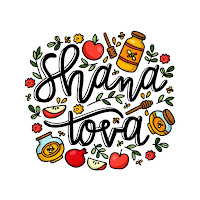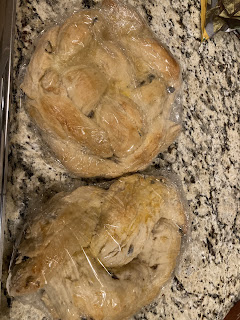Here is some interesting info on these important Jewish holidays
Jewish New Year (Rosh Hashanah) is being celebrated. It started at sundown; the two-day event which marks the first day of the Jewish new year was heralded by the blowing of the shofar, an ancient ram’s horn. Rosh Hashanah is a time for family and friendship - and also tzedakah - the act of giving to those less fortunate. Rosh Hashanah is nearly always celebrated in September or October. It is celebrated as one day by some denominations and two days by others.
Rosh Hashanah commemorates the creation of the world and marks the beginning of the Days of Awe, a 10-day period of introspection, reflection and making resolutions. It culminates in the Yom Kippur holiday, also known as the Day of Atonement.
The traditional greeting at this time, one of the two High Holy Days in the Jewish religion is Shana Tova! or sometimes said as Shana Tova um’tukah. In Hebrew, the word Shana means 'year' and Tova means 'good' while um’tukah means 'sweet'. So the greeting ‘Shana Tova!’ literally means have a good, sweet year – the English language equivalent of ‘Shana Tova um’tukah!’ would be ‘Have a Happy and prosperous New Year!”.
Sweet foods are traditionally eaten through the celebrations – slices of apple dipped in honey, pomegranate and braided challah bread are traditionally eaten during the celebrations. The challah bread is usually baked in a round shape to symbolize either the cyclical nature of life or the crown of God. Raisins are sometimes added to the dough for a sweet new year. Shana Tova!
And now a word from Elvis:
Send a Free Greeting card to your friends and family.
Shana Tova!




